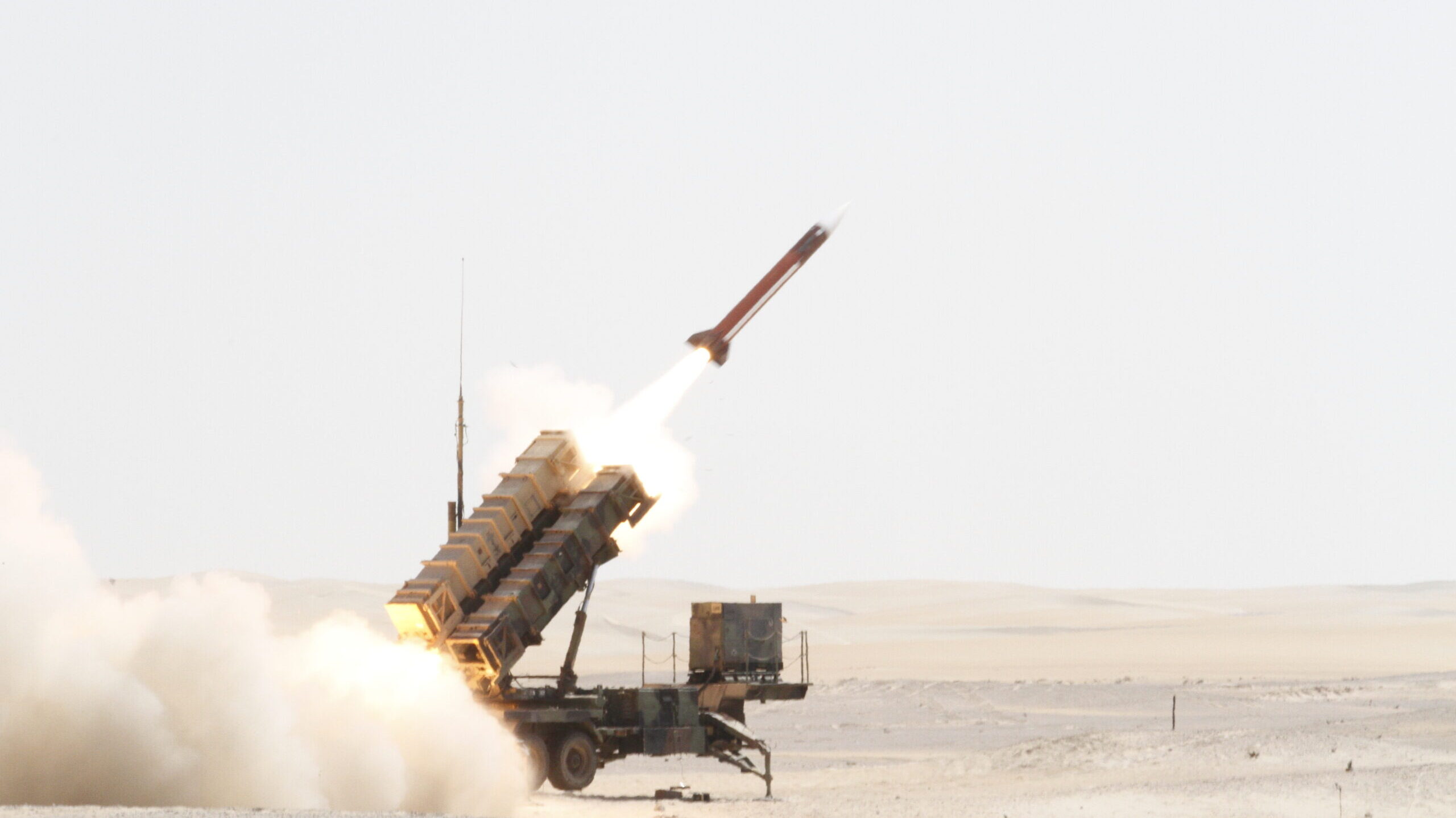
A Patriot missile is launched by Soldiers from C-Battery, 3rd Battalion (Airborne), 4th Air Defense Field Artillery Regiment, 108th Air Defense Artillery Brigade, at an airborne target during a joint live-fire exercise held Oct. 1, 2014. (U.S. Army photo by Sgt. Kyle Fisch/U.S. Army Central)
WASHINGTON: The US State Department today approved more than $5 billion in arms deals for key Middle East partners, including $3.05 billion in Patriot missiles for Saudi Arabia and $2.25 billion in THAAD systems for the United Arab Emirates.
The announcements, posted on the website of the Defense Security Cooperation Agency, are not finalized; Foreign Military Sales (FMS) cases announced like these have been approved by the executive branch, and now Congress must weigh in or do nothing. Should the Hill not object, the quantities and dollar values in the deals can change during negotiations with industry.
Given how long the FMS process can take, it is likely these potential sales have been in the works for some time. But any missile defense capabilities heading to the region are notable in the wake of a new agreement between Israel and a number of Arab nations around missile defense, with sensors and shooters across a number of countries planned to be linked together to counter Iran.
RELATED: For Israel and new Arab partners, $3 billion in defense business is just the beginning
The proposed Saudi deal will help replenish its “dwindling” stocks of Patriot missiles, per DSCA. It would cover 300 PATRIOT MIM-104E Guidance Enhanced Missile-Tactical Ballistic missiles (GEM-T), along with support equipment, with Raytheon the prime contractor.
“These missiles are used to defend the Kingdom of Saudi Arabia’s borders against persistent Houthi cross-border unmanned aerial system and ballistic missile attacks on civilian sites and critical infrastructure in Saudi Arabia,” the DSCA statement reads. “These attacks threaten the well-being of Saudi, International, and U.S. citizens (approximately 70,000) residing in the Kingdom. The Kingdom of Saudi Arabia will have no difficulty absorbing these missiles into its armed forces.”
As for the UAE, the proposed deal would cover two THAAD launch control stations, two THAAD tactical operations stations, and 96 missile rounds, along with associated support equipment. Lockheed Martin is the principle contractor; the DSCA notification states that the UAE will likely require a commercial offset as part of the deal.
According to a report by Janes, the UAE currently has two THAAD batteries operational, “one located to defend the energy industry at Al-Ruwais, and the other about 40 km northeast of Abu Dhabi city.”
On June 20, Israel’s defense minister announced a new US-led joint air defense network, known as the Middle East Air Defense Alliance (MEAD), with both Saudi Arabia and the UAE believed to be members. Notably, both Saudi Arabia and the UAE have had preliminary discussions about purchasing Israeli-made air defense systems, as Breaking Defense has previously reported.
In a ‘world first,’ DARPA project demonstrates AI dogfighting in real jet
“The potential for machine learning in aviation, whether military or civil, is enormous,” said Air Force Col. James Valpiani. “And these fundamental questions of how do we do it, how do we do it safely, how do we train them, are the questions that we are trying to get after.”


























